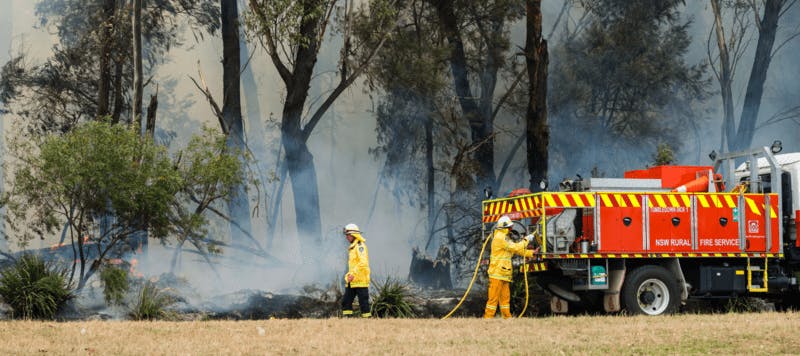First published on Wednesday, September 20, 2023
Last updated on Friday, September 15, 2023
Have you heard the latest news?
Everything you need to know about the latest trends impacting employers all over Australia. Keep up to date with the HR Heartbeat.
Let’s get into the headlines.
R U OK? Day 2023
This week, workplaces across Australia marked R U OK? Day.
September 14 this year was dedicated to starting meaningful conversations with everyone around you from your loved ones to your colleagues at work.
The day is also a reminder to employers of their responsibility to keep their staff’s psychological safety front of mind throughout the year.
Learn all the ways employers can create a supportive work environment this R U OK? Day and beyond.
Public holiday? Not on my calendar
The Fair Work Commission has decided that workers under the Social, Community, Home Care and Disability Services Industry Award (Social and Community Services Award) can now substitute public holidays for other calendar days.
That may sound a little confusing, but here’s what it means.
From the first full pay period starting on or after 11 September 2023, employees under that award can request to substitute a public holiday or part of a public holiday day for an entirely different day or part of that day.
With the employer’s agreement, the employee can use a different day as their public holiday.
The employee then gets a paid day off on their chosen date and if they happen to do any work on their chosen ‘public holiday’, they should be paid penalty rates for their time. Meanwhile, the hours they work on the replaced public holiday date are paid at their normal rate.
So, Social and Community Services Award workers don’t need to be bound by their calendars anymore—they can just request to make their own!
Brace for bushfires ahead
With bushfire risks set to be higher than usual this year, firefighters are rushing to conduct hazard reduction burns in Sydney’s urban fringe.
Sydney residents were witness to a heavy blanket of smoke across the city heading into the weekend and the Spring heatwave it brought with it.
Considering the fact that the extreme rainfall of last year has led to excessive vegetation this Spring, and hazard reduction burning efforts will continue into November you need to be aware of your obligations as an employer.
First and foremost, you have an obligation to make sure your employees have a safe place to work. Even if bushfires aren’t a direct threat to your business, it’s possible that smoke from hazard reduction burns can impact some employees more than others.
Here are a few steps you can take to prepare for the months ahead:
- Keep workers informed of the steps your business is taking and any advice from emergency services and health agencies that you must adhere to.
- Consider alternatives or implement additional safety measures for employees working outside.
- Display advice and guidelines to help keep employees safe at work during bushfires.
- Make sure the premises are safe with well-sealed doors and windows, as well as good ventilation.
- Advise workers on how to communicate any health & safety risks or of any work-from-home arrangements they can make.
Bushfires can also lead to unexpected absences if employees have to evacuate an area or run into transportation interruptions.
Planning for emergencies like this can be challenging, but you can make sure your business is always fully staffed with our easy-to-use shift and rostering software. So, it’s easier to be fully staffed and prepared for every eventuality.
One for the corporate history books
Qantas has been making headlines throughout the week for its legal battles.
On September 13, the High Court unanimously ruled that its sacking of 1700 workers back in 2020 was in fact illegal.
The events unfolded at the height of the COVID-19 pandemic when the airline, like many tourism industry operators, was under mounting pressure.
This ruling is a lesson for employers of all sizes to make sure you’re following due processes no matter how quickly you need to make decisions for your business’ survival.
That includes your redundancy process. Documenting your redundancies and logging your moves every step of the way will help you prove your compliance if it’s ever called into question.
BrightHR’s Redundancy Navigator helps you complete a legal redundancy process from end to end while backing your records on our secure, unlimited, cloud-based storage system.
That wraps up this edition of HR Heartbeat. Stay tuned for more headlines and all the latest updates that will keep you in the know with all the major employment changes coming your way.
If you’ve got questions about the top HR headlines from this week, ask BrightLightning:
Do I have to do anything for R U OK? Day?
No, there is no obligation for businesses to participate in charity days. However, participating in a charity day can be a great opportunity to involve your employees in a good cause. Additionally, you might align the day to some of your business goals or obligations, such as reinforcing policies of diversity and inclusion or training your employees in taking care of their mental health in the workplace.
My business has been impacted by bush fires, can I send my employees home without pay?
An employer can stand down an employee during a period they cannot be usefully employed because of:
- industrial action (unless the industrial action was organised or engaged in by the employer)
- a breakdown of machinery or equipment where the employer cannot reasonably be held responsible, or
- a stoppage of work for any cause which the employer cannot reasonably be held responsible. A stoppage of work can include:
- a government direction to close the workplace (e.g. COVID govt directed shutdowns)
- a natural disaster damages or destroys the workplace, or blocks access to it (e.g. floods and bushfires), or
- a health hazard makes it unsafe for employees to continue working in the workplace (e.g., gas leak in the workplace)
It does not include a slowdown of work, the inability to operate in the usual fashion, an inability to operate without difficulty, or a planned shutdown. Stand-down advice is very specific to individual circumstances, therefore ensure that you contact the Advice Team if you are thinking about standing down your employees.
Do my employees have to work a public holiday?
Public Holidays are part of the National Employment Standards.
Each state has different Public Holidays allotted annually.
An employee is entitled to be absent from work on a day or part day that is a public holiday.
You can request an employee to work on a public holiday if the request is reasonable. An employee can refuse if the request is unreasonable or their refusal is reasonable.
As an example, an employee may have caring responsibilities for their child due to the daycare/school being closed on the public holiday. It would be unreasonable to require this employee to attend work on this day.






